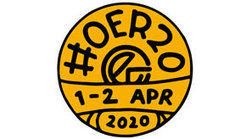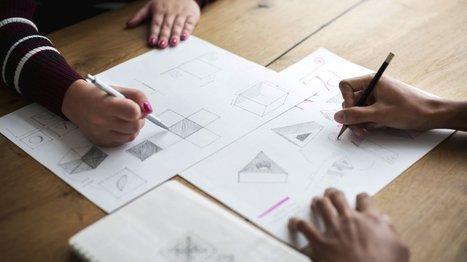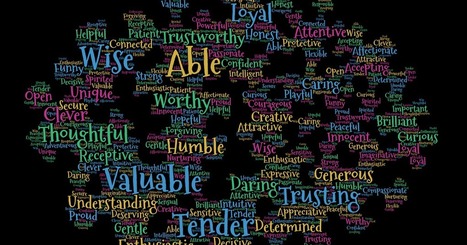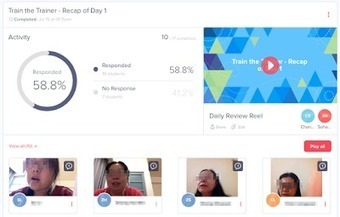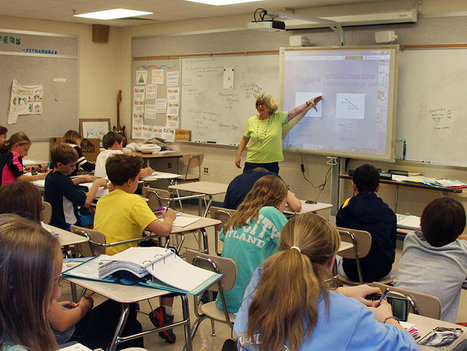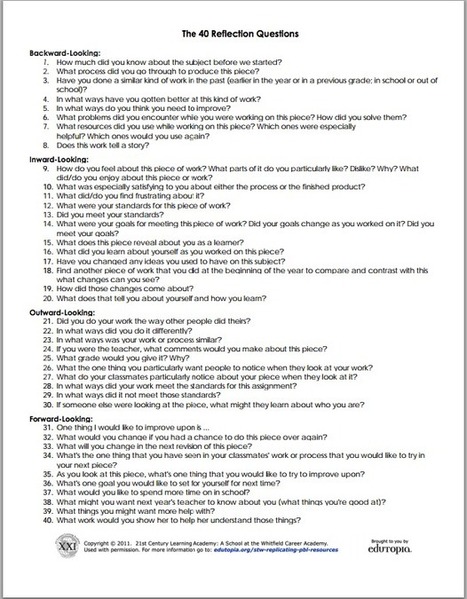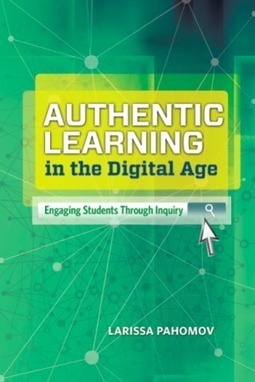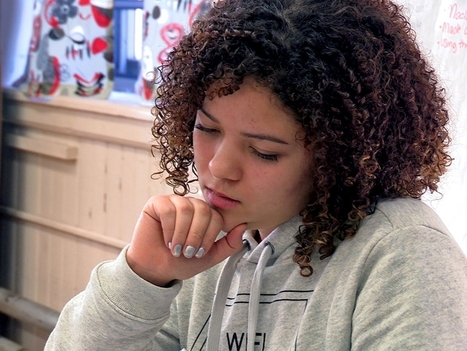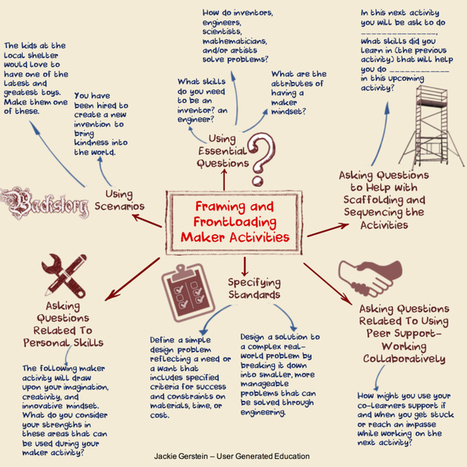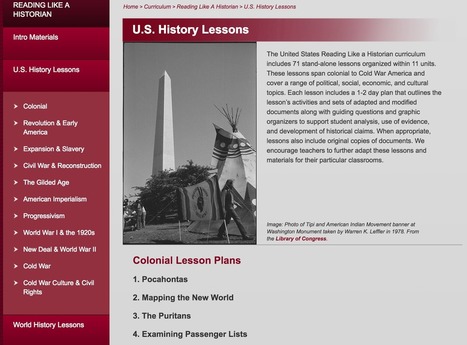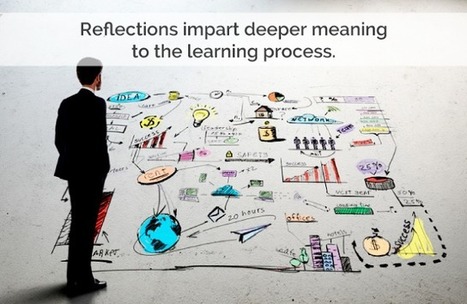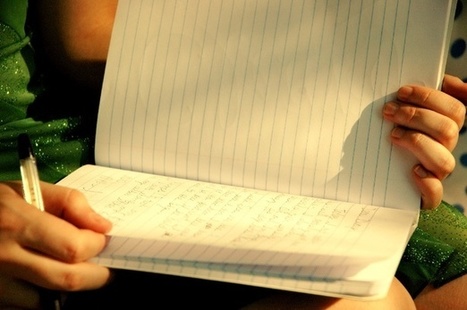 Your new post is loading...
 Your new post is loading...
On 22nd January we ran a webinar for the Association for Learning Technology (ALT) where we discussed the relationship between copyright literacy and open practice. The resources from the webinar are online, including the slides, a recording and a Padlet where people shared their ideas and creative ways of understanding the relationship between the two…
Real learning happens when learning “sticks.” Employing solid learning retention activities with your learners means using tools you can call on anytime to help students remember learning. The learning retention activities offered in the TeachThought article 15 Reflection Strategies To Help Students Retain What You Just Taught Them are among the simplest and the best for every teacher to use. Each one encourages the natural reflection process that helps our students absorb learning effectively.
One of these skills is, writing. Writing helps one to reflect and to clarify ideas which may otherwise be transient and consequently lost to the learner. Writing helps one to make sense of our experiences, our learning and how one can best relate the learning experience to the world outside the classroom. In many ways, the act of writing, of reflecting, is learning by doing - something all learners need to have experience of.
This naturally led to a conversation about portfolios. Portfolio discussions typically center on the tools: how to save, share, and publish student work. When we instead let the process of curating, reflecting, and sharing serve as the focal point, portfolios become summative in nature and can be viewed as an add-on to the end of a unit, project, or activity.
For portfolios to be truly valuable to both students and teachers, they need to provide insight into not only what students created as a representation of their learning, but also how and why they created it. If the ultimate goal is to develop students as learners, they need an opportunity to make connections to the content as well as the overarching learning objectives.
Educational feedback though, has two main areas: assessing students and teacher evaluation. These may be complimentary (or not), but very much a feature of many educators' days. In this sense, I'd like to share the following infographic on the types of feedback which is possible to give learners and further on, a couple of suggestions on feedback and professional development for educators.
One of the true keys to learning and developing any ability is the willingness and capacity to reflect on what we have learned.
So how can we encourage our students to reflect on what they have learned? Generally we want them to reflect from a slightly more distant perspective of time rather than more immediately within the classroom and this is where Recap can really help.
Via Nik Peachey
One of the the most universal patterns of learning in any context is to encounter a new idea, and then put that idea into action somehow, whether through near transfer or far. A daily pattern of reading, then doing something as the result of what’s been read can provide an easy framework for authentic learning outside of the classroom.
Rebecca AlberStudent EngagementWhen students reflect on what they have learned, ownership of that new knowledge increases. Check out these three strategies to use with secondary students.
Via Dean J. Fusto
“Within the world we find two dimensions, reflection and action, in such radical interaction that if one is sacrificed—even in part—the other immediately suffers.” –Paolo Freire, Pedagogy of the Oppressed Skilled learners are aware not only of what they’re learning but how they’re learning (or not learning) it. They stop a moment during their studies... Read More
At my university, I teach students in an interpersonal communications course. These students are first term college students, a few fresh out of high school. As is my common practice, I end my week of instruction with reflective questions for the students: What was your significant learning this past week? What principles for everyday life can you extract from our class activities? (Note: The activities are experiential). What did you learn or what was reinforced about yourself? What can you take from the class activities to use in your life outside of class?
Reflecting on one's work can be instrumental to growth and improvement, but it's an activity that's often under utilized.
“Students in inverted classrooms need to have more space to reflect on their learning activities so that they can make necessary connections to course content” (Strayer, 2012).
If you were to observe a flipped classroom, what do you think would it look like? Maybe students are working in groups. Maybe each group is working on a different problem. Maybe the instructor is walking around the room talking with each group and checking on the students’ progress. And each group of students is probably asking a different question each time the instructor walks by. It’s probably noisy since everyone is talking to each other or engaged in a task. And students are probably standing up or leaning in towards one another to hear their group members talk about the next task. Students might be writing in a workbook, typing on their laptops, or watching a video on the screen of some new technological device.
|
A really useful resource from the University of Edinburgh: a Reflection toolkit with material both for those doing the reflection and for those facilitating or assessing reflection. Additionally there is a literature review on reflection, and a substantial bibliography.
“Somewhere we know that without silence words lose their meaning, that without listening speaking no longer heals, that without distance closeness cannot cure.” —Henri Nouwen
As an educator, I hope that students gain the confidence to express themselves and the strength to ask for help. At their age, students can sometimes struggle to find their voices and hear those of others.
Last year at OER I was carried away on a cloud of enthusiasm and promised faithfully to write a blog post. This year’s OER is staring me in the face and I have done nothing about it! So here are my thoughts on designing and building a web based resource. They are derived from a chapter that I wrote called Parallel lines in Distributed Learning: Pedagogy and Technology in Online Information Literacy Instruction edited by Tasha Maddison and Maha Kumaran, Chandos, 2016 – but basically I have chopped it right down and dumped the literature review! I apologise in advance if it comes under the heading of “teaching Granny how to suck eggs!”
I'm often asked why I blog. What's the attraction? Is it worth the effort? How do I keep it going? Here are 5 reasons:
Reflecting takes many forms in the classroom, and it is an integral and indispensable part of education. Great teachers reflect on their daily practice and tweak their units, interactions, and attitudes, both at the end of a class and in the midst of their work. In the same way, students need to reflect on their actions and their work in order to build their classroom community and increase their own knowledge and skills. If you want to integrate reflection into your teaching practice, here are seven tips that you can start implementing in your classroom now
When educators take the time to explicitly frame the maker activities and build meaningful reflection in at the end, they're helping to ensure kids are reaching
Via John Evans, Dean J. Fusto
This is in a series of posts by teachers in the TUSD Connect Fellowship for the 2015-2016 school year. I hope you enjoy reading their reflections on the impact of technology in their classroom, specific tools and strategies that have made a positive impact on teaching and learning, and their goals moving forward.
Entering into this fellowship, my goal was to see how the use of technology can improve my student’s learning. As someone who is relatively proficient in tech and can navigate my way around most software I know the importance of being “tech literate” in the 21st century, however as a new teacher I question where to efficiently incorporate that technology into my teaching.
"...a request from someone important to me on the other side of the world provokes my thinking…
‘ Have you ever written a blog post on strategies, tools or frameworks that a teacher can use to reflect on their past year of teaching?’
My immediate response: ‘ Reflection has to happen all the way along. It’s too late at the end of the year.’
But here are some questions to ask yourself, as you look back, look within and look forward…"
Via Jim Lerman, Dean J. Fusto
Through being reflective about your own teaching practices, model and guide students toward a more reflective approach to their projects, grades, actions, and reactions.
Via Amy Burns, Ivon Prefontaine, PhD, Dean J. Fusto
December issue of UKED Magazine - Festive theme
Research shows that reflecting after learning something new makes it stick in your brain.
|

 Your new post is loading...
Your new post is loading...
 Your new post is loading...
Your new post is loading...




